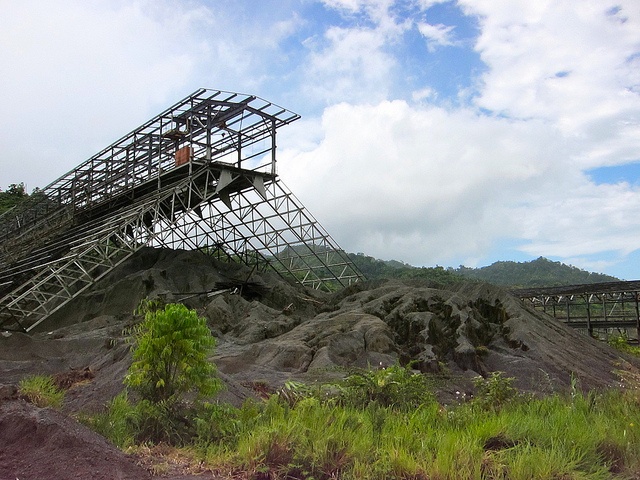8 January, 2015As the debate on whether to reopen the controversial Panguna copper mine in Papua New Guinea intensifies, local communities must be aware that mining operator Rio Tinto’s bad behaviour is not a thing of the past.
The environmental devastation caused by the Panguna mine has been one of the key grievances by local communities against Bougainville Copper Limited (BCL), the mining company majority-owned by Rio Tinto.
Disputes over the vast mine, located in the autonomous region of Bougainville, contributed to the start of the country's bloody civil war between Bougainville separatists and Papua New Guinea from 1989 to 1998.
And far from cleaning up its act, Rio Tinto stands accused of ongoing environmental damage, health and safety violations, and clashes with indigenous groups.
For example, nomads living in Mongolia’s Gobi Desert say their wells have dried up after their scarce source of underground water has been diverted by Rio Tinto’s vast Oyu Tolgoi gold and copper mine in the country. The company had promised to keep the herders’ precious water source untouched.
In December 2013, Rio Tinto’s Ranger uranium mine in Australia’s Kakadu national park leaked 1.4 million litres of radioactive slurry. It followed a similar leak just a week earlier at a Rio Tinto uranium mine in Namibia. According to an independent expert report on the leak at Ranger, corporate governance and management of process safety did not meet expected standards at the time of the leak.
Rio Tinto’s track record on the environment is no better in Indonesia. Take the Grasberg mine where Rio Tinto has invested over a billion dollars. Norway’s state-owned pension fund sold its entire US $850 million stake in Rio Tinto in 2008 because Grasberg discharges huge amounts of tailings (the often contaminated by-product of mining extraction) directly into a natural river system.
The mining giant also fails to protect its workers. In 2013, 40 people were killed at the company’s fully or partially owned operations. Miners at Grasberg recently threatened a month-long strike after their demands that management be held responsible for the deaths of five workers in September went unheeded.
Rio Tinto, which has a market value of US$ 90 billion, is increasingly turning to contract and subcontracted workers to cut costs. At its Madagascar Minerals operation, there were double the numbers of contract workers as permanent staff as of early 2014. In Australia, Rio Tinto has sacked fulltime workers on mass but kept on casual or contract workers at the Hail Creek mine in Queensland.
It is this kind of corporate bad behaviour that has led IndustriALL Global Union, which represents 50 million workers in over 140 countries, to run an on-going campaign against Rio Tinto to demand it live up to its claim of being a sustainable company.
Only last October, thousands of workers at Rio Tinto took part in a global day of defiance to demand safer workplaces, secure jobs and respect for workers’ rights.
It is up to the people of PNG and Bougainville to decide whether to let Rio Tinto back. If they do, IndustriALL will work with unions in the area to ensure the workers are organized and to struggle for justice at the mine.
But make no mistake, Rio Tinto remains far from ethical. There’s little reason to believe that the company’s conduct in Bougainville would be any better today than it was in the past.
